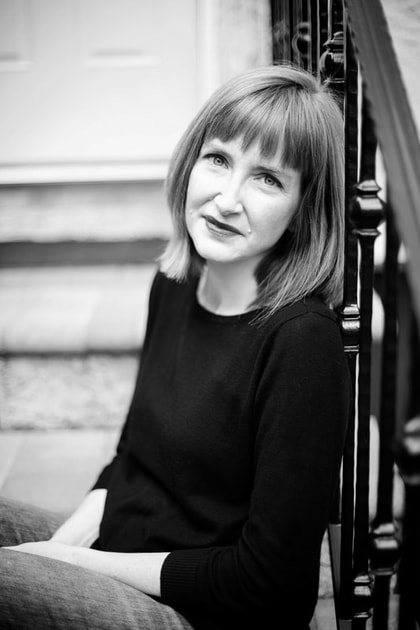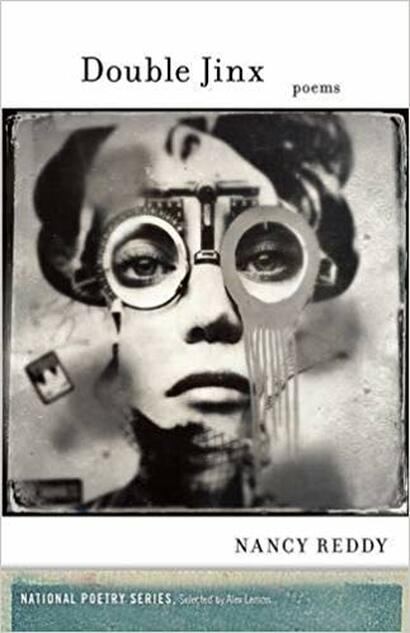|
Making Peace with the Wolves: An Interview with Nancy Reddy Nancy Reddy is the author of the book Double Jinx (2015) which was selected by Alex Lemon as a winner of the National Poetry Series, and the chapbook Acadiana, which was the winner of the Fall 2016 Black River Chapbook Competition. She has poetry appearing and forthcoming in Blackbird, Tupelo Quarterly, 32 Poems, and elsewhere. She is currently an Assistant Professor of Writing at University in Southern New Jersey, teaching Writing and First Year Studies. Reddy’s book, Double Jinx, tells of childhood and coming-of-age that is relevant for young women and a variety of readers. Each poem gives attention to the struggle of adolescence and facing our own monsters. From Cinderella to Little Red Riding Hood, Reddy’s poems bring fresh perspective and life into classic fairy tale characters, using them to help distinguish and identify something that has become most pertinent today: our identities as individuals. At the time of its publication in 2015, Double Jinx has become an essential piece for readers—especially young women—encouraging them to be cunning, strong, and above all, understanding of the world as they grow into. Turnea: One of the many things that I enjoyed about Double Jinx was how there was a myriad of fairy tale allusions and settings of the woods. Readers see this in “Our Wilderness Period” and “Cinderella Story”. What do fairy tales and the woods mean to you, not only as a writer, but from an individual standpoint? Reddy: I’m especially drawn to the transformative aspects of fairy tales. Because the book is so much about adolescence, drawing on fairy tales (and mythology and religion, in other poems) allowed me to think about my own personal experiences in light of bigger cultural narratives. And many of the poems in the book rewrite fairy tales and other stories from a different perspective, like “Cinderella Story,” which re-examines Cinderella from the stepsisters’ viewpoint, and “Little, Red,” which thinks about the mother’s absence in the original Little Red Riding Hood. D.T: With regards to Double Jinx’s structure and line endings, the parsed lines and enjambments work beautifully for each poem. For example, “Frontier Thesis” really keeps the enjambments and parsed lines consistent, which is extraordinary. What was the intention behind the line endings, and was there a different form you considered while writing these poems? N.R: The magic of enjambment! Though of course I’d learned about different kinds of linebreaks in my undergrad coursework, it was my MFA friend and classmate Brittany Cavallaro whose work showed me how much work linebreaks can do. In Bri’s work, linebreaks often double the meaning – so that a line has one meaning when you read to the break, and then when you follow the turn, that meaning is doubled or contradicted or complicated in some way. (You can see this in her poem “Tuesday Night at the Illinois State Fair,” for example.) In terms of process, I draft longhand, usually just in long chunks. Drafting that way allows me to be more flexible in terms of how I think about line breaks – if it isn’t part of the poem from the first draft, I can play around with it more as I revise and as I transfer the draft to a computer screen. D.T: There are many wolves in the book; personally, I found the wolf in “Little, Red” and “Genealogy” to be both compelling and unforgettable. It reminds readers that, in life there are people who symbolize these wolves, those who have caused them harm or trauma. How does one overcome or find closure with these people/wolves? Does one ever? N.R: Here’s the thing about wolves: wolves are distinct from dogs because they can’t fully be domesticated. I’ve had – probably lots of us have – wolves in my life, people who seem like they’re tamed, but who aren’t ever going to be fully reliable or fully present. (And I think our culture is more likely to let men turn into wolves, for whatever that might be worth.) For me, writing has been a way to make peace with those wolves, and to have some measure of compassion for what it would be like to be a wolf trying to live among humans and how sad and lonely that might be. (And a note about the father genealogy poem: it was much longer and had a whole thing about squirrels that wasn’t quite working so I cut it like crazy then left it that way sort of on a dare. It turns out my father doesn’t much like that poem, I don’t think. But I stand by its accuracy.) D.T: Since Double Jinx’s publication, a lot has happened in the world. From the rise in the Me, Too movement, to the election, so much has changed. There are so many new heroes and villains that have emerged. Do you have a recent individual that has inspired your work? In other words, who or what is your muse? N.R: You’re right – the world really does feel so different now than it did in 2015. For me, personally, the biggest change is that I have two kids now, the youngest of whom was a newborn when I finished the oldest poems in Double Jinx. They’ve shaped my writing in ways I couldn’t at all have anticipated – their wonder at seeing the world, where everything is new, has helped me to see so much with new eyes. D.T: For young female readers and writers out there, what is one thing you wish for them? N.R: Two ways of getting at the same idea: A friend told me recently that she’d been able to get a big anthology together (including lots of famous poets and a contract with a university press) primarily through “audacity and heart.” I’ve been trying to channel that spirit as I start some new projects that feel scary to me. And something I have written on the bulletin board above my desk, from an interview writer Alison Roman did: “If you’re afraid to do something bad, you’re never going to do something new.” Dominic Turnea is a senior creative writing and marketing student at Ohio Northern University in Ada, Ohio. He is the co-editor in chief of Polaris Literary Magazine and the Vice President of Ohio Northern’s Sigma Tau Delta chapter. He has been published in Polaris, and has published several online articles for The Odyssey Online. He currently lives in Garfield Heights, Ohio. Comments are closed.
|
AuthorWrite something about yourself. No need to be fancy, just an overview. Archives
April 2024
Categories |


 RSS Feed
RSS Feed
